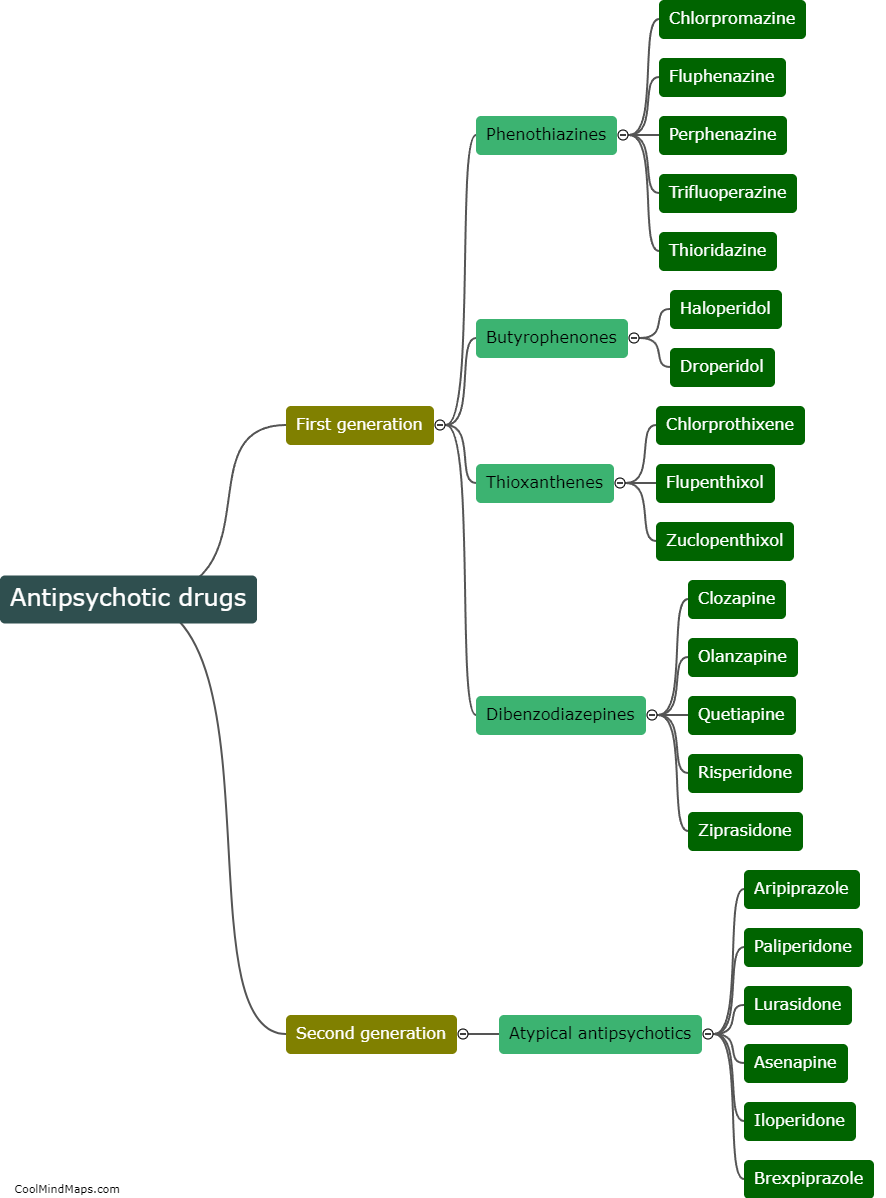How do drugs interact with the central nervous system?
Drugs interact with the central nervous system (CNS) by altering the chemical balance and function of the brain and spinal cord. The CNS consists of neurons that communicate through chemical messengers called neurotransmitters. Drugs can either enhance or inhibit the normal functioning of these neurotransmitters. For example, some drugs increase the production or release of neurotransmitters, while others block their reuptake or inhibit their breakdown. This leads to changes in the transmission of signals within the CNS, affecting a wide range of physiological and cognitive processes. Common effects of drug interactions with the CNS include pain relief, sedation, euphoria, altered perception, and changes in mood and behavior. It is important to note that different drugs have distinct mechanisms of action and can target specific neurotransmitter systems, contributing to their varying effects on the CNS.

This mind map was published on 4 July 2023 and has been viewed 72 times.











